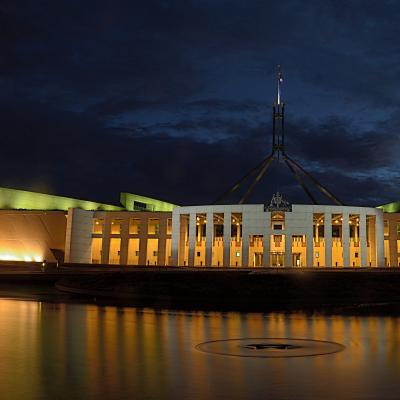Statement to the Senate Inquiry on the News Media Bargaining Code

Read by Matt Nguyen
First, we at Reset Australia would like to thank all the Senators for their time, and the opportunity to share our thoughts on this world-leading legislative agenda.
Reset Australia is an independent, non-partisan policy and advocacy organisation committed to fighting digital threats to democracy.
A central part of every strong democracy, is a resourced, competitive and diverse news media sector. The successive crises of the past year, in Australia and across the world, have driven home how critical access to factual and timely information is for our health, societies and democracies.
As we approach the final stages of this Code, it’s important to ensure the catalyst for the Code’s development aligns with the societal benefits it will offer. This new law seeks to remedy distortions in the market for digital advertising in online news that favour the search and social media giants. . The intention to redistribute revenue from monopolists is right and important. But the underlying imperative to do so is not to rescue the publishing industry from competitive threat. The reason we do this is to protect a fundamental democractic principle, the public right to a free and accessible press.
It is through this lens that we must evaluate this Code to ensure its broader impacts serve its primary beneficiary – the Australian people. This law must be designed to benefit the public and not just the publishers. Indeed, if we do not establish in this legislation a system of public accountability over this rebalancing of power of information markets, we risk sliding back into an untenable position where monopolists (be they technology or media companies) have the power to hold our democracy hostage.
This brings us to the primary position outlined in our submission. We believe the bill should go further to ensure that the oversight and verification of compliance with these new rules – both the bargaining components and the data sharing provisions – are powers held by elected governments that are accountable to the public interest. The government should seek to be more than a referee between platforms and publishers – it should actively serve all Australians. To this end, the legislation should establish an empowered audit authority. It should be capable of assessing how well ad revenue redistribution and the algorithmic curation of news are serving the public. We strongly support Senator Patrick’s call for these powers in his proposed amendments last week. And whilst this audit power is needed to verify the data-sharing and advance notification components that are vital for the functioning of this current Bill, a purely competitive lens misses the broader implications of this Code. The audit authority’s remit should be broadened to ask bigger questions of how platform ad sales and curation algorithms create risk and harm to the public — for example by monetizing and promoting disinformation ahead of accurate information. Second, we support stronger protections and guidelines for how data is shared to protect consumers from harm and to give them control over who has their data and why. This should work under a broader framework of data rights and privacy which will hopefully be captured within the review of our Privacy Act.
The last few weeks we have experienced the sobering power these platforms have over our lives. Big Tech has threatened to pull services from the country. They have altered the content that thousands of Australians see in the name of a media stunt. And they have actively used their monopoly control over information markets to try and influence Australian opinion. This reveals an entrenched disregard for community welfare and threatens to undermine Australia’s public decision making processes. The solution that these platforms proposed is to use another one of their products, rather than an accountable, transparent mechanism that fairly considers commercial and public interests.
This Code represents a novel approach to fairly rectifying severe market imbalances. We would implore the Committee to consider strengthening this Bill with targeted amendments, such as algorithmic audits, that will take into account the impact on communities and establish a new operating standard.
The platforms will say that this code is ‘unworkable’, but we don’t need it to work for them. We need it to work for Australians.
We look forward to working with the Committee and any industry stakeholders on this important Bill and are happy to take questions.
[END]